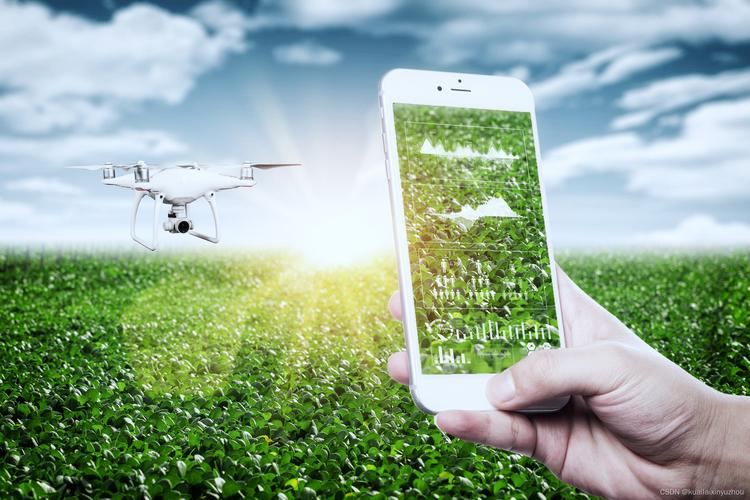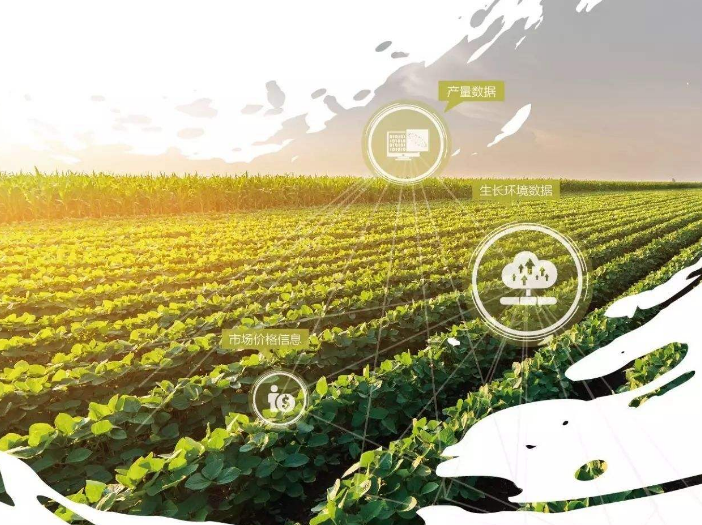

— Blogs —
—Products—
 Consumer hotline +8618073152920
Consumer hotline +8618073152920 WhatsApp:+8615367865107
Address:Room 102, District D, Houhu Industrial Park, Yuelu District, Changsha City, Hunan Province, China
Product knowledge
Time:2024-07-27 19:49:24 Popularity:999
Internet of Things (IoT) agriculture, also known as the Internet of Agricultural Things (IoA), is the application of Internet of Things (IoT) technology in the field of agriculture, aiming to realise the intelligent, efficient and sustainable development of the agricultural production process through high-tech means. The following is a detailed explanation of IoT agriculture and agricultural IoT:

I. Internet of Things Agriculture(IoT agriculture)
IoT agriculture is a modern agricultural development model that applies IoT technology to the whole process of agricultural production. It uses sensors, wireless communications, cloud computing, platforms and applications and other technical means to carry out real-time monitoring, data collection and analysis of various elements in the process of agricultural production, to provide refined management of agricultural production, to improve the efficiency and quality of agricultural production, to reduce the cost of production, to ensure the safety of agricultural products and traceability, and to promote the modernisation and wisdom of agriculture.
Second, iot agriculture
Agricultural Internet of Things (IoT) is an Internet agriculture that connects everything in the agricultural production process, which is a large number of sensor nodes that constitute a monitoring network, collecting information through various sensors in order to help farmers find problems in a timely manner and accurately determine the location of the problems occurring. Its core and foundation is the Internet of Agriculture, which is an extension and expansion on the basis of the Internet of Agriculture, and its user end extends to the items and the items, and the items exchange information and communicate with each other through the Internet of Things, in order to realise a concept of intelligent identification, positioning, tracking, monitoring and management in the process of agricultural production.
III. IoT agriculture Key technologies
The key technologies of agricultural Internet of Things mainly include perception technology, transmission technology and intelligent processing technology:
1. Perception technology: collect relevant information of agricultural production process, agricultural product logistics and plants and animals through various perception devices (such as sensors).
2. Transmission technology: using wireless sensor networks, mobile communication wireless networks and the Internet, etc., to transmit the massive agricultural information acquired.
3. Intelligent processing technology: Fusion and processing of transmitted agricultural information, and through intelligent operation terminal, realising process monitoring, scientific decision-making and real-time service of agricultural pre-production, production and post-production.
Fourth, the main features of the IoT agriculture:
1. Intelligent monitoring: real-time monitoring of soil humidity, temperature, light, nutrients and other environmental parameters using sensors.
2. Precision agriculture: according to the monitoring data, precise control of irrigation, fertiliser application, pest control, etc.
3. Remote control: Farmers can remotely access and manage farmland through smart devices.
4. Data-driven decision-making: Provide scientific basis for agricultural production by collecting and analysing data.
5. Efficient use of resources: Reduce the waste of resources and improve the efficiency of resource utilisation.

V. Application significance
The application of IoT agriculture is of great significance to agricultural development:
1. Improve the efficiency and quality of agricultural production: through real-time monitoring and collection of farmland data, farmers can reasonably arrange irrigation, fertiliser and other agricultural activities to improve crop growth rate and yield, while reducing resource waste and environmental pollution.
2. Guarantee the safety and traceability of agricultural products: IoT technology can realise the monitoring and management of the whole process of agricultural products from production to sales, ensure the quality and safety of agricultural products, and provide traceability information.
3. Promote agricultural modernisation and intelligence: the application of IOT agriculture promotes the digital and intelligent transformation of the agricultural industry, and improves the automation level and informatisation of agricultural production.
Sixth, the future of agricultural IoT:
1. Increase in the level of intelligence: with the development of artificial intelligence technology, IoT agriculture will be more intelligent, and will be able to automatically identify crop conditions and make corresponding decisions.
2. Application of big data and cloud computing: through big data analysis and cloud computing, agricultural data can be better processed and utilised to provide more accurate guidance for agricultural production.
3. Development of integrated systems: IoT agriculture will integrate more technologies and systems, such as satellite remote sensing and drone monitoring, to form a more efficient agricultural management platform.
4. Cost reduction and popularisation: As the technology matures and is produced on a large scale, the cost of IoT devices will be reduced, making the technologies affordable and accessible to more small-scale farms.
5. Environmentally friendly and sustainable development: IoT agriculture can help achieve precision fertiliser and irrigation, reduce the use of chemical fertilisers and pesticides, and promote sustainable agricultural development.
6. Integration of the industrial chain: IoT technologies will facilitate the integration of the entire industrial chain of agriculture, from production to distribution, and improve the transparency and efficiency of the chain.
7. Policy support and standard setting: As the importance of IoT agriculture becomes more and more prominent, more policy support and industry standards may be introduced in the future to promote the healthy development of the industry.
8. Cross-border co-operation and innovation: IoT agriculture will attract more cross-industry and cross-field co-operation to promote technological innovation and business model innovation.
To sum up, IoT agriculture and agricultural IoT are one of the important directions for the development of modern agriculture, and they realise the intelligent, efficient and sustainable development of the agricultural production process through high-tech means. The future of agricultural IoT is full of opportunities and challenges, and it is expected to lead agriculture into a new era of more efficient, intelligent and sustainable development.
Related recommendations
Sensors & Weather Stations Catalog
Agriculture Sensors and Weather Stations Catalog-NiuBoL.pdf
Weather Stations Catalog-NiuBoL.pdf
Related products
 Combined air temperature and relative humidity sensor
Combined air temperature and relative humidity sensor Soil Moisture Temperature sensor for irrigation
Soil Moisture Temperature sensor for irrigation Soil pH sensor RS485 soil Testing instrument soil ph meter for agriculture
Soil pH sensor RS485 soil Testing instrument soil ph meter for agriculture Wind Speed sensor Output Modbus/RS485/Analog/0-5V/4-20mA
Wind Speed sensor Output Modbus/RS485/Analog/0-5V/4-20mA Tipping bucket rain gauge for weather monitoring auto rainfall sensor RS485/Outdoor/stainless steel
Tipping bucket rain gauge for weather monitoring auto rainfall sensor RS485/Outdoor/stainless steel Pyranometer Solar Radiation Sensor 4-20mA/RS485
Pyranometer Solar Radiation Sensor 4-20mA/RS485
Screenshot, WhatsApp to identify the QR code
WhatsApp number:+8615367865107
(Click on WhatsApp to copy and add friends)
